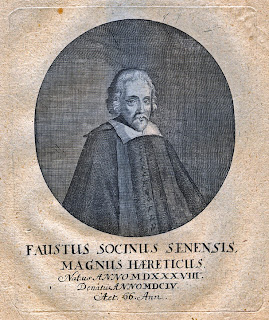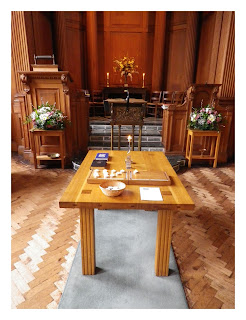With just a wooden sword: the power of the "as if" - lighting candles for a just and inclusive society
 Like many children I have very fond memories of playing with my wooden sword. Like knights of old my friends and I would fight many imaginary battles against each other and dragons in the back gardens of our respective homes. Of course, the battles fought owed more to the imaginary mythical constructs of literature and film than they did to any actual real and bloody conflicts.
Like many children I have very fond memories of playing with my wooden sword. Like knights of old my friends and I would fight many imaginary battles against each other and dragons in the back gardens of our respective homes. Of course, the battles fought owed more to the imaginary mythical constructs of literature and film than they did to any actual real and bloody conflicts.I think that the most fun I ever had with a wooden sword was, whilst on holiday, playing with it in a ruined castle, Caernarvon I seem to remember. In my childhood one had, of course, to bring with you your own sword or, failing that, to find the least knobbly stick lying around and work hard, very hard at imagining it was in fact a sleek, shining sword.
However, today, as many of you will know, at many ancient ruins there are now often well-stocked shops full of attractive gifts ranging from the more-or-less pointless to the highly educative and even genuinely useful. Somewhere in between the pointless and the genuinely useful there are, yes you've guessed it, wooden swords. Really good ones too, along with shields, bows and arrows and even costumes and plastic armour. In many, many ways I regret the way the heritage industry has sanitized our ancient ruins but also admit that I never pass through one a shop in one of the new gleaming visitor centres without looking longingly at those wooden swords.
Last year I finally succumbed to temptation and bought one, not at a castle, but from the toy shop here in town. A bargain at four quid (see picture above left). I was wandering around the shop with Susanna as she looked for some pots and pans for her grandson Harrison when, all of a sudden in front of me, there was a big box of wooden swords. I bought one on impulse - ostensibly for wee Harrison but, since I still haven't given it to him, I have my doubts about this reason. Anyway, he's staying with us this weekend and so, before I finally give it to him, I’d like to use it to help place before you a thought.
 |
| Faustus Socinus |
In the case of our forebears this latter belief involved them in opposing military conscription and it was connected with this that they made a wonderful symbolic intervention. To all intents and purposes at that time it was obligatory for every male in Poland to wear a szabla, a distinctive kind of Polish sabre, in order to show one’s readiness to intervene violently on behalf of the state. Their stroke of genius was to agree to wearing swords publicly to fulfil their then current societal demands but, as I am sure you have already guessed, the swords they chose to wear were made, not of sharpened steel, but of wood. To this day their intervention - being in a violent world "as if" all swords were made of wood - stands as an inspirational, if highly unusual, kind of a non-violent direct action that helped bring to the fore of their own society a real questioning about how they were going to deal with their own problems connected with religious, political and national diversity.
Though it may have been a stroke of genius to make this stand it is important to see that, in their own immediate local context, it was a symbolic intervention which failed. The Polish Brethren were always very small group in Poland and during the Counter-Reformation their stance, both theological and political, ensured that they were further marginalised by what was becoming an increasingly intolerant society in the wake of the Reformation and Counter-Reformation. Their church, the liberal, pacifist Minor Reformed Church, was finally dissolved on July 20 1658 when the Sejm, the Polish parliament, expelled them from Poland. Now stateless they were forced westwards into Holland, England and thence to the New World.
However, and this "however" I cannot stress enough, their non-violent "as if" stance rooted in the example of Jesus - who reminded us that those who live by the sword will die by the sword - has over the centuries continued to help feed and sustain not only our own but humanity's wider, general hope of creating a better, non-violent world. In Jesus' life and in communities such as our own who have tried to followed him we can say a light came into the world which, so far, no darkness has been able to overcome.
True, there may have been for our forbears no decisive victory of this light over darkness but they remained committed to wearing their wooden swords as if this were going to overcome the darkness of violence. It is this "as if" attitude that continues to inspire me to follow in their footsteps and to try to keep alight the light they kindled and to be able to myself, "as if" I really knew it were true, that "We shall overcome some day."
 |
| Candles for a just and inclusive society |
Speaking of its immediate effect on the wider world outside these church doors this small event may be considered to be spectacularly unsuccessful. Despite getting good publicity via all the churches and that I received half a dozen emails of support for the event from various church groups (including two large evangelical groups) and some politicians only twelve people actually came in to light a candle. But this is, of course, not even a fraction of the whole story still to be told and played out whenever a community begins to acts "as if" what they are doing will be successful.
However, amongst those who came there were two very active, committed local politicians, Daniel Zeichner from Labour and Ed Cearns from the Lib Dems, the Revd Dr Tim Maquiban (from our neighbour Methodist Church) also came. They and other nine people who came all, of course, got the point of the event and lit their candles "as if" what the event was saying were successful - that such an inclusive vision of peace and justice would overcome the anger and hatred being expressed in the events occurring outside our church on Christ’s Pieces. Also, strange to tell, this small almost unnoticed intervention resulted in an unexpected invitation for to me to speak on BBC Radio Cambridgeshire this morning. Now I've organised some reasonably high-profile religious and political events but I have never been invited to talk about them on the radio. Yet the "as if" quality of the candle lighting seems to have appealed both to the producer and presenter in a surprising way and it was deemed worthy of some air time.
The simple point I want, therefore, to make today is that so many of our big successful public events may look and sound impressive but, in truth, they often merely re-enforce stale status quos - and in them nothing really important is addressed nor changed. On the other hand "as if" events, those small scale gentle, non-violent but nevertheless challenging tries or grasps at creating a better world may not look at all impressive, and may even seem to have failed in their moment of articulation, but, in truth, they often carry within them a revolutionary power that is sometimes capable of bringing about a real radical overturning of the old ways and the heralding of the kingdom of heaven itself. Jesus own life bears eloquent witness to the truth of this.
These reflections remind me of a powerful verse in the Bhagavad-gītā:
You have a right to perform your prescribed duty, but you are not entitled to the fruits of action. Never consider yourself the cause of the results of your activities, and never be attached to not doing your duty (2.47).
Speaking very personally I have to admit I really do not know whether my forbears' wearing of wooden swords actually helped to reduce violence in the their own land - but I find I have no choice but to agree with them in their willingness to act as if it were going to. Likewise I really do not know whether the lighting of candles for a just and inclusive society will be in anyway a contributory cause that helps usher in the kingdom of heaven but I find I have no choice but to act as if it will.
Everyday of my life I ask myself the question posed by George Kimmich Beach in his prayer we heard earlier and which we used yesterday:
"The human needs we see about us are so many, so diverse, so weighty, so complex – leaving us to wonder: am I, or are we, strong enough to face all this?"
Everyday I answer as does Beach: "No we are not" and on my worst days this answer leaves me powerless and despairing. But, as Beach continues, we are also always forced to ask: "and yet, how can we not be [strong enough]?"
As the Bhagavad-gītā says it is our duty only to try and so I find that, on my good days and the bad, I can only pray "God, may your spirit be our strength" then (figuratively speaking) put on my wooden sword and participate in church events like lighting a candle for a just and inclusive society.
None of us can live with the certain expectation that the good WILL come to pass and that we WILL overcome - not even Jesus could do that as his cry on the cross, "My God, my God, why have you forsaken me", reveals - but all of us can, and should act "as if" this good WILL come to pass and "as if" we WILL overcome.
It seems to me that the real power for real change lies not in the sharp, sword-like certainty of belief that we are right and we will prevail but in the gentle, non-violent, wooden sword-like interventions of the "as if."
-o0o-
The service concluded with us singing "We shall Overcome":


Comments
I played with wooden swords and bows and arrows as a kid too (Robin Hood and King Arthur) and I also look rather longingly at those wooden swords in English Heritage gift shops. I took up fencing a couple of years ago but it was all a bit too competitive and all I wanted was to swish about looking swashbuckling.